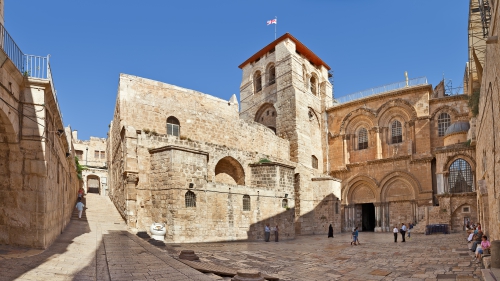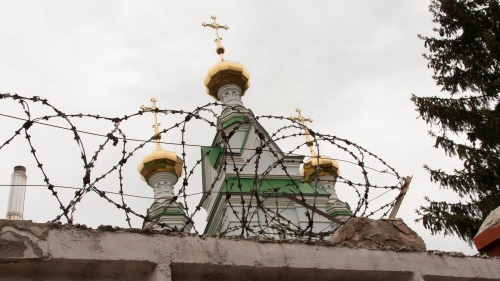Analyzing Muslim/Copt tensions in Egypt
The recent outbreak of violence between Muslims and Coptic Christians in southern Egypt, as portrayed by several major news agencies, has been too quickly painted as a case of fanatical Arab Muslims trying to purge an oppressed minority from Egyptian society. The main source for the news stories, other than the official government statements, is the Coptic Bishop Wissa, who told Reuters on January 3 that Muslims "are breaking the homes of Christians because they don't want Christians living among them."
But there are indications the reasons for the violence, which has so far left 20 people dead and 33 wounded, may not be so simple. In the first place, the very rendition of events varies from teller to teller, with usually only the Christian side represented in Western news agencies. With emotions on both sides no doubt running high, it is important to present both sides of the story and to then place the current events within the larger historical perspective.
What emerges with reference to media misrepresentation, is that Western news agencies have before been accused of heightening religious tension in Egypt by oversimplifying clashes involving Muslims and Christians. In early 1999, Egyptian Copts and Muslims jointly brought a multi-billion dollar defamation case against a British newspaper for accusing Egyptian police of discrimination against the Coptic minority. Lawyers claimed the article was a deliberate attempt to foment religious antagonism. The head Coptic authority, Pope Shenouda III had himself earlier denounced the article in particular and Western interference in Coptic affairs in general. Pope Shenouda's statement directly denounced, as exaggerated and harmful, the claims that Egypt was systematically persecuting its Coptic minority. It is important to note that the main source for such claims of persecution in the 1998 British article was the same Bishop Wissa. According to Reuters, Pope Shenouda has not yet commented on the current conflict.
Recent events, centered in the southern Egyptian town of Al-Kosheh, reportedly erupted on December 29 over a financial dispute between a Muslim and a Copt. According to the Associated Press on January 2 relying on anonymous sources and the testimony of Wissa, the dispute flared when a Coptic shop-owner refused credit to a Muslim street vendor and then insulted him. The Muslim then allegedly returned with members of his family and started shooting when the shop-owner refused to apologize. Reuters also presented a similar rendition but mentioned in a January 3 article, that Muslim residents gave a slightly different rendition. According to them, an old woman tried to return some merchandise to the shop-owner but was refused and then pushed over by the Copt. A Muslim vendor then became angry and attacked the merchant and there was gunfire.
Regardless of the truth, events deteriorated further when relatives and friends became involved in the conflict. According to Wissa, quoted by a variety of agencies, events disintegrated when "barbaric people (Muslims) carrying rifles went on a rampage and started firing at Christian shops and Christian houses." But a January 2 Reuters report mentions, by way of explanation of the escalation of tension, that Coptic villagers rioted and damaged 50 stores when Egyptian police made five arrests in the previous argument that had resulted in the wounding of three passers-by. The Associated Press reported that the woundings were in fact the reason for the Muslim discontent that sparked the riots.
It is evident that any understanding of the recent violence is complicated by a divergence of facts. While such details would perhaps be inconsequential in a less emotional setting, the delicate nature of Egyptian society necessitates a higher level of scrutiny of such important occurrences. There is no doubt that there exist some elements within Egyptian society that are interested in seeing a deterioration of relations between Muslims and Christians in Egypt. But an October iviews.com investigation revealed that some Coptic elements, mostly in the United States, are no more conciliatory and are engaged in an organized campaign of anti-Muslim hate propaganda.
While Muslims and Copts in Egypt have not always enjoyed the best of relations, history reveals that the current escalation in tension is a somewhat uncommon occurrence considering the largely congenial past relations between the two groups. One cannot help but wonder if the current conflict is overstated both by extremist elements on both sides and Western observers who have historically been eager to exploit differences between Copts and Muslims in Egypt. Furthermore, it is probable that the tension that does exist has more to do with twentieth century political and economic developments rather than with any insurmountable religious polarization. Such historical considerations will be discussed further in Part II of this analysis.
Zakariya Wright is a regular contributor to iviews.com

















